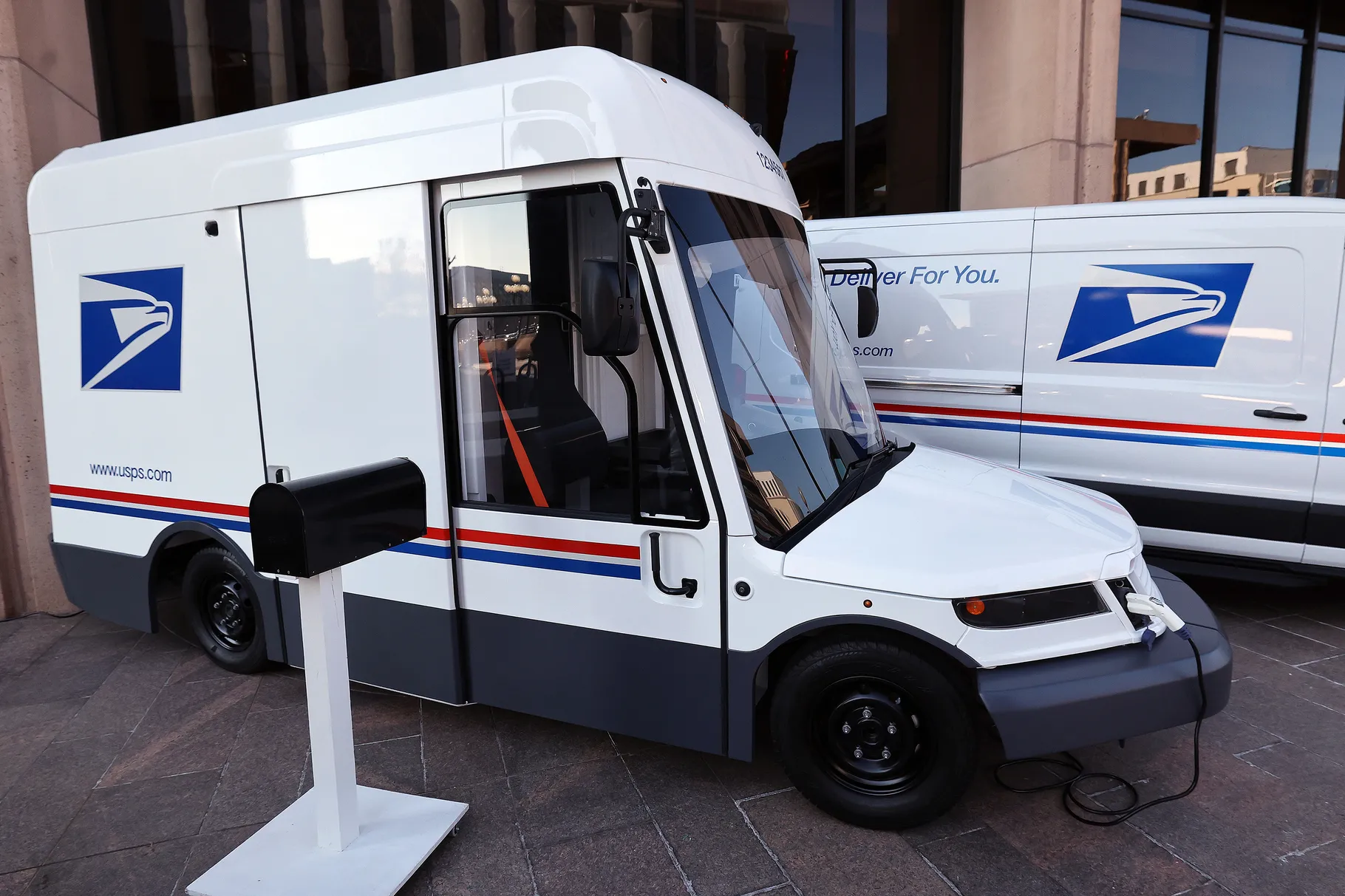USPS Announces Electrification of Mail Truck Fleet

 Why you can trust us
Why you can trust us
Founded in 2005 as an Ohio-based environmental newspaper, EcoWatch is a digital platform dedicated to publishing quality, science-based content on environmental issues, causes, and solutions.
The U.S. Postal Service announced on Tuesday that it will work toward electrifying its fleet of mail trucks, with a goal of all new mail truck purchases being electric by 2026. USPS expects to reach 66,000 battery-electric delivery vehicles by 2028.
USPS is working to transition its aging fleet of over 220,000 vehicles to more efficient and safer delivery vehicles. The plan involves adding at least 66,000 electric delivery vehicles, which will have modern safety technology and air conditioning, unlike many current delivery vehicles.
The announcement comes after months of controversy. In February 2022, Postmaster General Louis DeJoy shared a plan to include just 10% battery electric vehicles in the plan for added Next Generation Delivery Vehicles (NGDV). DeJoy’s initial plan for upgrading the aging fleet of mail delivery trucks included adding thousands of gas-powered vehicles, which the Environmental Protection Agency (EPA) criticized. States and environmental groups sued DeJoy and USPS over the plan. In July, USPS expressed intent to purchase 50,000 NGDV, with 20% of those vehicles being battery-electric.
Now, the newly announced plan from the Postal Service will add a minimum of 60,000 NGDV, with 75% of those being electric vehicles. There will also be 21,000 additional commercial off-the-shelf (COTS) electric vehicles.
The move includes a total $9.6 billion investment, with $3 billion in funds made available by the Inflation Reduction Act. The Inflation Reduction Act funding will provide $1.3 billion for electric delivery vehicles and $1.7 billion for charging infrastructure, according to a statement from the White House.
DeJoy had previously stated that transitioning to electric vehicles would be too expensive for the Postal Service. But in the latest announcement, the Postmaster General said, “The $3 billion provided by Congress has significantly reduced the risk associated with accelerating the implementation of a nationwide infrastructure necessary to electrify our delivery fleet,” although most EV funding is still expected to come from USPS revenues.
Environmental groups are applauding the newly announced plan to transition a larger portion of the new mail trucks to battery electric vehicles.
“Every neighborhood, every household in America deserves to have electric USPS trucks delivering clean air with their mail, and today’s announcement takes us almost all the way there,” Adrian Martinez, a senior attorney for Earthjustice, one of the environmental groups that sued the Postal Service earlier this year, said, as reported by NPR.
According to DeJoy, the USPS is also working on reducing inefficient transportation, like minimizing truck trips and air cargo, to further reduce carbon emissions and costs.
New electric mail trucks are expected to begin servicing postal routes in late 2023.
Subscribe to get exclusive updates in our daily newsletter!
By signing up, you agree to the Terms of Use and Privacy Policy & to receive electronic communications from EcoWatch Media Group, which may include marketing promotions, advertisements and sponsored content.

 233k
233k  41k
41k  Subscribe
Subscribe 




